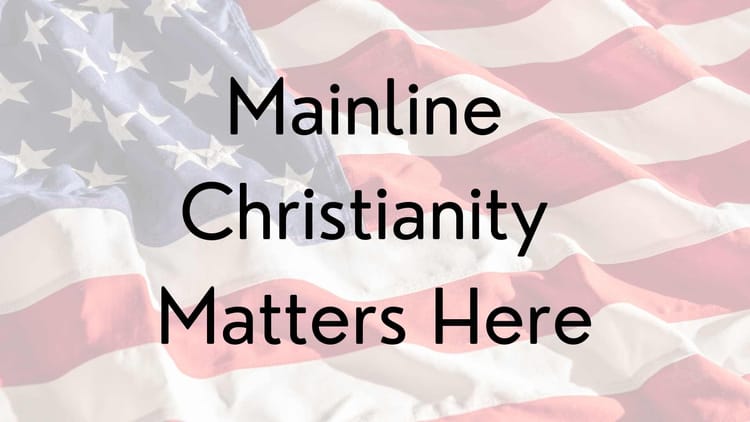Creation Care at General Convention: Food, Fossil Fuel & Climate Change

I have a confession to make. It’s kind of embarrassing.
This blog, at least in theory, focuses on choosing renewal, tending creation and growing disciples.
Mostly, I haven’t been spending this General Convention thinking about those things.
General Convention is half over. I spent the first half testifying. I testified in support of creating a task force to review the process for bishop elections. I testified in support of creating an anti-racism curriculum for youth. I testified that the way we currently fund the churchwide budget (by a voluntary asking of 19% of each diocesan budget) is a little nuts, and that a lower, required assessment (say 12-15%) would be more sane. Oh, and I testified that amending the canons to make a clear provision for joint sessions of the House of Deputies and House of Bishops would be a good idea. In addition to all that testifying, I sat a lot in the exhibit hall at the Episcopal Faith, Food & Farm Network booth.
With all this testifying and booth sitting I am embarrassed to say I almost entirely missed the workings of the committee for Environmental Stewardship and Creation Care.
But good news! Writing this blog gained me a friend who serves on that committee and he kindly and generously offered to provide a summary of their work.
The Rev. Kirk Berlenbach, a clergy deputy from Pennsylvania who blogs at So This Priest Walks Into a Bar, has kindly provided a guest post. He wrote this over the past two days but the lack of access to wifi during the day and late night meetings has prevented me from posting earlier. Thank you Kirk and sorry for the delay! Updates are included in italics as appropriate.
An Insider’s View from Committee 16: Earth Stewardship and Creation Care
Food Ministry Resolution & GMO Resolution
When we began our work as a committee we had two food related resolutions before us. (This blog had an interview regarding the first resolution earlier this spring.)
1) A091 “Affirm Work for Food Ministries and Food Security,” came to us out of the Social Justice and Public Policy Committee. With eleven resolves covering projects in Navajoland, community gardens, farm legislation and WIC, this was an omnibus which we felt needed to be divided into two separate pieces of legislation. The first resolution kept the original title focused on food ministries, encouraging parishes and dioceses to develop programs to encourage healthy and sustainable food as well as ministries to address food insecurity in their communities. The second resolution, tentatively titled “Develop and Continue Food System Advocacy” addressed the policy end of the issues. This resolution calls for advocacy in regards to a range of important needs such as farm workers, food workers, food benefits and protection of our environment from carbon emissions and damaging industrial farming practices.
We hope that these resolutions will continue to lift up the importance of food, as it affects our health, the well being of our neighbor (especially those who are vulnerable) and on our environment.
The final version of A091, “Affirm Work for Food Ministries and Food Security” can be found here.
The second resolution, A170 “Develop and Continue Food System Advocacy” can be found here.
These two food ministry resolutions will now be considered by the General Convention with the recommendation from this committee to adopt both resolutions. As of Sunday night June 29th, neither has yet come to the floor of either house.
2) B006 “Support the Potential of Genetically Engineered Foods in the Care for Creation” arose out of the CCAB on Science, Technology and Faith and dealt with GMO’s as well as several general matters related to encouraging education around healthy food consumption. It should be noted that the resolution was sponsored not by the CCAB but by two bishops who sit on that committee since the work on it was not completed in time to be received as a committee resolution. The committee quickly concluded that these disparate parts ought to be covered separately. The substance dealing with healthy food was already covered in the work on A091 (see above).
This left us to focus on the question of GMO’s. In essence the resolution asked that The Episcopal Church not issue a blanket rejection of GMO’s but instead acknowledge that the technology, while destructive in some cases such as Roundup resistant crops, can also have a positive purpose. The testimony we received from the open hearing on this resolution was quite compelling and included two young women who have worked as sustainable, organic farmers. The concerns raised were many but focused primarily on the fact that the corporations that create such products are motivated by profit and foster an agricultural system that is not only unsustainable, but inherently destructive ecologically and economically. After much discussion and attempts to find a way to modify the resolution in a way that would preserve what we believed was its original intent we ultimately concluded that the best way forward was to simply recommend rejection of this resolution.
Update: if I am reading my virtual binder right, as of Sunday night June 29th this resolution has indeed been rejected by both houses.
Fossil Fuel Divestment
Our committee received 6 different resolutions calling for TEC to divest any and all holdings in companies that deal in fossil fuels. We also received one resolution which, while acknowledging the issues, called for further study and evaluation of the matter as opposed to definite action.
The first order of business was to condense the six similar resolutions into a single one that captured the intent of all of them. We also took the other resolution which in addition to considering divestment also brought up the reality of “Environmental Racism.” I confess that I was not familiar with this term. In essence it refers to the reality that hazardous industries tend to locate their extraction, processing and disposal sites disproportionately near communities of color and poverty. Although we did not choose to preserve the language related to the study of divestment, we did feel that the issue of Environmental Racism was extremely important and needed to be preserved.
However, before we could condense or craft any final resolutions we needed to hold open hearings on all of the original resolutions. We had a number of people who testified representing both sides on the issue in terms of divestment. Those supporting the resolution expressed concerned about climate change and the need for our Church to help lead the in combatting the problem and help us move towards developing clean and renewal energy sources. Those speaking against divestment serve the church in financial management capacities. Although they acknowledged the reality of climate change and the moral responsibility of the Church to combat it, they expressed two primary concerns. The first was that to do so would not yield the best return on the Church’s investments. The second was that should we divest, we would lose the capacity to affect change within the industry. They argued that we should retain our investments in fossil fuels so that we can continue to encourage them to end their most damaging practices and develop new and cleaner ones.
After carefully considering all the testimony the committee was unpersuaded by the arguments to retain our assets. I do feel it is worth noting that those who testified against were acting out of genuine care for our Church and were not unconcerned about the environment. Indeed, they knew they were walking into a potentially hostile environment when giving their testimony, yet they did so anyway. One opened his remarks by saying, “I work for Exxon Mobile and I don’t have horns.”
The result of our work were two resolutions – one calls for our Church to divest its holdings in fossil fuels as soon as it is fiscally responsible to do so and to refrain from buying any more. In addition we instruct them to invest aggressively in green energy alternatives. Moreover we request and encourage the Church Pension Fund to do the same. Finally we ask that all dioceses and parish to seriously consider the question of divestment. We also revised the resolution regarding Environmental Racism and moved it forward.
The resolution calling for divestment is here. This resolution was passed by the House of Bishops tonight. Prior to passing it, they struck the language calling on the Church Pension Fund to divest. One argument for striking the language is that the Church Pension fund is a separate body with its own board of directors. The fact that it passed at all is a victory for divestment advocates. It now goes to the House of Deputies. [UPDATE: The Living Church has published an article on the discussion in the House of Bishops.]
The resolution regarding environmental racism is here. (Just read the parts that aren’t struck through!) It has not yet been considered by either house.
In other news on Creation Care…
The committee also created a new resolution A171 Commendation of Papal Encyclical, commending Laudato Si. The full text can be found here. The House of Bishops has acted to approve and this now moves to the House of Deputies.
Probably the biggest news from this committee is the proposal they created: A030 Create Task Force on Climate Change, rewriting a proposal from the Committee on Science, Technology and Faith. This resolution calls for the church to create Regional Consultative Groups. These regional groups would develop parish and diocesan resources to support ecologically responsible stewardship of church-related properties and buildings. The resolution calls for a funding allocation of $700,000 of which $600,000 is to be direct grants to congregations and dioceses for measurable pilot projects in ecological sustainability. The full text of this resolution is here. At publication it was unclear if either house had yet considered this resolution. This is the only creation care resolution with budget implications.

And now we wait…
The Committee on Environmental Stewardship and Creation Care has completed its work. The House of Bishops and House of Deputies is beginning to consider that work.
In just a few short days, much work has occurred. In just another few short days, this Convention will have acted.
Pray for the church and all creation.





Member discussion